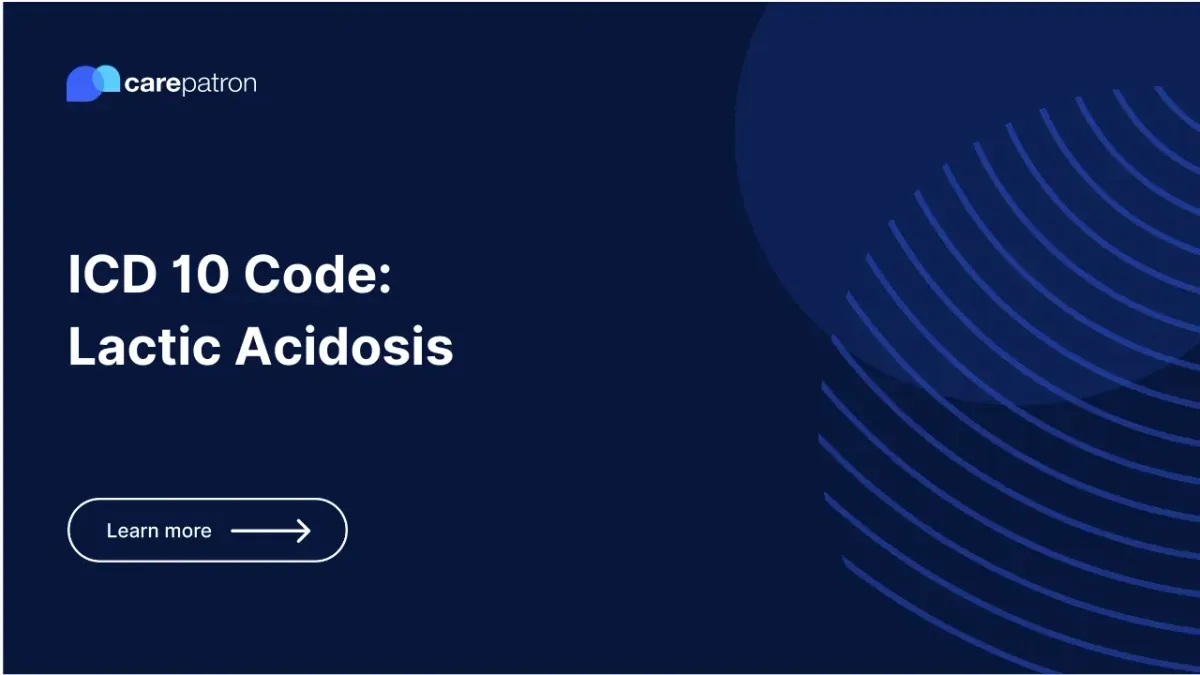
Lactic Acidosis ICD-10-CM Codes
Learn about lactic acidosis ICD-10-CM codes, including E87.21, E87.20, and more. Covers causes, symptoms, treatments, and billing for metabolic acidosis.
Use Code
Commonly asked questions
Lactic acidosis ICD-10-CM codes are used when a patient presents with clinical signs of acid-base imbalance, metabolic acidosis, or confirmed lactic acid accumulation in the blood. These codes support documentation and billing for conditions like unspecified lactic acidosis, acute metabolic acidosis, and associated metabolic disorders.
Yes, lactic acidosis ICD-10-CM codes such as E87.21, E87.20, and E87.4 are billable when used to document medically necessary care related to lactic acidosis, metabolic acidosis NOS, or related acid-base disorders. Accurate diagnosis coding ensures appropriate reimbursement and supports claims that reflect applicable respiratory failure, diabetes, or metabolic diseases.
Treatment typically involves correcting the underlying cause of lactic acid buildup, such as heart failure, sepsis, or diabetic ketoacidosis, and stabilizing the patient’s acid-base balance. Interventions may include IV fluids, oxygen therapy, acid-base correction, and support for respiratory failure if present.
EHR and practice management software
Get started for free
*No credit card required
Free
$0/usd
Unlimited clients
Telehealth
1GB of storage
Client portal text
Automated billing and online payments
